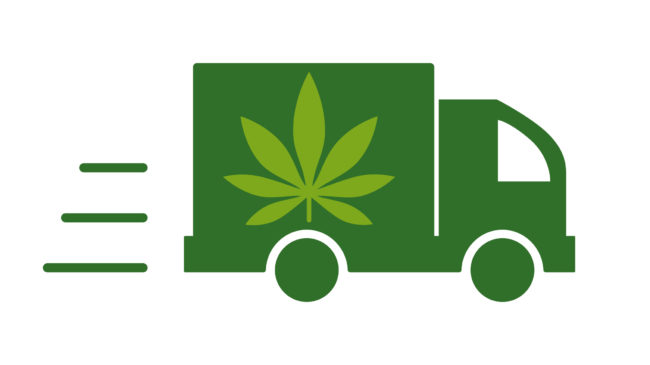The current demand for legal marijuana products is unprecedented. As Americans scramble to stockpile supplies amid the COVID-19 outbreak, marijuana has been no exception. From New York to Las Vegas, reports show lines of people lined up waiting to get inside legal cannabis dispensaries.
The coronavirus pandemic has also led to rapid changes in some of the rules governing legal marijuana sales. Out of concern for public health, regulators have quickly enacted some changes that make it easier for medical patients and recreational consumers alike to purchase marijuana without coming into close contact with large groups of people.
Illinois Gov. J.B. Pritzker announced the state would allow curbside ordering and pick-up for medical patients. Emergency orders in Michigan now allow all cannabis stores to deliver products and also allow customers to order online and pick them up curbside. And Massachusetts has expanded the allowable radius for marijuana delivery services.
These constructive changes are consistent with an overall theme of federal, state and local governments wiping away unnecessarily burdensome regulations to more ably respond to the ongoing coronavirus crisis in a timely manner. There’s a clear argument that such changes should be made permanent.
Aside from these swift changes in state marijuana regulations, some marijuana businesses have been confronted in recent days by orders to close all “non-essential” businesses and for individuals to remain in their homes. Such orders have called into question which businesses are considered “non-essential.” Nevada Gov. Steve Sisolak, for instance, had to issue clarification about this definition a day after he ordered “non-essential” businesses to close.
Particularly within the context of a state medical program, it’s critical to recognize that many individuals rely on marijuana or its derivatives as a medicine to treat chronic health conditions such as Crohn’s Disease, epilepsy, muscular dystrophy, or to treat the side-effects of chemotherapy. Individuals suffering from chronic health conditions are also those at increased risk for COVID-19 so it’s especially important that these individuals have access to the medications they need to treat their underlying health conditions. In this case, at a minimum, that means medical marijuana businesses should be free to remain open throughout the public health crisis to facilitate access for patients.
Several localities have acknowledged this outright. In Nevada, for instance, marijuana businesses were not listed among the “non-essential” businesses enumerated by Gov. Sisolak and many of those businesses continue to operate.
Among the seven California counties in the Bay Area that have issued shelter-in-place requirements, several have clarified that marijuana businesses are “essential,” although rules vary slightly from one to another. San Francisco originally forced marijuana businesses to close but reversed that directive within a matter of hours. Neighboring counties have mostly allowed marijuana businesses to remain open, at least for medical patients.
Industry trade groups in California have also urged Gov. Gavin Newsom to set a statewide policy that marijuana businesses are “essential.” According to the Orange County Register:
While marijuana dispensaries and delivery services scramble to meet the increasing demand across Southern California, others are also pushing the state to expand its list of essential businesses to dispensaries.
In a letter Tuesday to Gov. Gavin Newsom, Jerred Kiloh, president of the United Cannabis Business Association and owner of The Higher Path dispensary in Sherman Oaks, urged Newsom to include cannabis operators on the list of essential businesses needing to stay open during the COVID-19 restrictions.
“Mandating legal retailers and distributors to shut down will only allow the illicit market to flourish and will expose consumers to harmful untested products,” Kiloh said in his letter. “We humbly ask that you classify cannabis retailers and their supply chain partners as essential business, just like pharmacies, so we can continue providing crucial medicine to our patients/members.”
Ensuring medical patients have ongoing access to legal marijuana in a safe manner will remain critical throughout the coronavirus crisis, but the issue may get murky as the National Guard is activated. Use of the National Guard to enforce quarantines, for example, could, in theory, set the stage for a direct conflict between state and federal law on marijuana as U.S. troops could impound marijuana delivery drivers and seize their cash or inventory. State leaders need to begin thinking about and planning now for how to deal with such a seemingly unlikely scenario — in case it materializes.
Federal and state conflict over marijuana laws has simmered for years and could conceivably boil over during the current crisis. Rather than look backward, however, states should continue on their recent course of reducing unnecessary rules and regulations and making it easier for medical marijuana patients to obtain the medicine they need.

